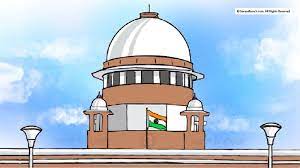Specific Relief Act, 1963, Section 34 – Evidence Act, 1872, Section 68 – Succession Act, 1925. Section 63 –Will – Proof of execution –Concurrent findings – Registered sale deed – Suit for declaration and possession – High Court reversing the findings and declared that the plaintiff was the owner of the suit house property under the registered Sale Deed dated 18.01.1979 and decreed its possession in her favour – Further, the High Court declared the Will dated 23.03.1977executed in favour of Meghraj, the second defendant, null and void – High Court glossed over this Will, entertaining a doubt as to its genuineness, only on the ground that it was not produced earlier and as the first defendant had affixed her signature in the Sale Deed dated 18.01.1979 –High Court failed to appreciate the independent evidence adduced to prove the said Will – The scribe of the Will was an Advocate – Deposing as PW3, he asserted that he had written the same upon the instructions of late Babulal – He stated that it was read over to late Babulal and thereafter, the witnesses and late Babulal affixed their signatures therein – The depositions of the attestors of the Will also remained unshaken and clearly evidenced that the same was signed by late Babulal in their presence and they, in turn, affixed their own signatures in his presence – Held that once such evidence was adduced in terms of Section 68 of the Act, 1872, and the mandatory requirements prescribed under Section 63 of the Act, 1925, were duly satisfied, the Will stood proved in the eye of law and the same ought not to have been brushed aside lightly – As the Will was duly proved to be genuine, the participation of the first defendant in the execution of the Sale Deed dated 18.01.1979 thereafter paled into insignificance – The owner of the property under the Will was Meghraj, the second defendant, and he was neither a party to the said sale deed nor did his mother affixher signature therein in the capacity of being his guardian – In consequence, title to the property belonging to Meghraj did not pass under the said sale deed even though his mother was a signatory thereto in her own individual capacity – The verdicts of the Trial Court and the First Appellate Court holding so were, therefore, perfectly valid and justified and the High Court erred in overturning the same by applying its own notions and reversing their findings of fact and law – Judgment of the High Court in Second Appeal liable to be set aside and the judgments of the learned Additional Civil Judge and the learned First Additional District Judge respectively restored. (Para 11 to 17)
SUPREME COURT OF INDIA
2024 STPL(Web) 132 SC
Savitri Bai And Another Vs. Savitri Bai
Civil Appeal No. 9035 of 2013 (@Special Leave Petition (C) No. 33563 of 2011)-Decided on 29-2-2024
https://stpllaw.in/wp-content/uploads/2024/04/2024-STPLWeb-132-SC.pdf







